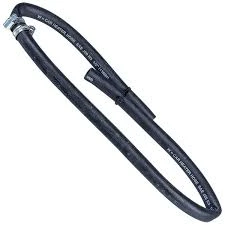gas fuel line hose
Nov . 12, 2024 13:24 Back to list
gas fuel line hose
Understanding Gas Fuel Line Hoses Importance, Types, and Maintenance
When it comes to the safe and efficient operation of any gasoline-powered vehicle, the significance of gas fuel line hoses cannot be overstated. These hoses are crucial components of a vehicle’s fuel delivery system, responsible for transporting gasoline from the fuel tank to the engine. Given their pivotal role, understanding their construction, materials, types, and the importance of regular maintenance is essential for vehicle owners and enthusiasts alike.
The Importance of Gas Fuel Line Hoses
Gas fuel line hoses are designed to withstand the harsh conditions associated with gasoline transportation. They must be able to endure not only the corrosive properties of gasoline but also the pressure fluctuations that occur in the fuel system. Any failure in these hoses can lead to serious consequences, including fuel leaks that can cause fires, environmental damage, or engine failures. Therefore, it's vital to ensure that these hoses are of high quality and are regularly inspected.
Types of Gas Fuel Line Hoses
There are various types of gas fuel line hoses, each designed for specific applications
. The most common types include1. Rubber Fuel Hoses These are traditional fuel hoses made from rubber compounds. They are flexible, easy to install, and are available in different sizes. However, they can degrade over time due to exposure to gasoline, heat, and ozone.
2. Ethanol-Resistant Hoses With the increasing use of ethanol-blended fuels, specially designed ethanol-resistant hoses have emerged. These hoses are made from materials that can withstand the corrosive effects of ethanol, extending their lifespan.
3. Stainless Steel Braided Hoses For those looking for maximum durability, stainless steel braided hoses offer excellent strength and resistance to wear and abrasion. These hoses are ideal for performance vehicles or heavy-duty applications where additional protection from mechanical damage is necessary.
4. PTFE Hoses Polytetrafluoroethylene (PTFE) hoses are known for their chemical resistance and can handle both high and low temperatures. They are often used in specialized applications where extreme conditions are present.
gas fuel line hose

Maintenance of Gas Fuel Line Hoses
Proper maintenance of gas fuel line hoses is essential for preventing issues before they arise. Here are some tips for ensuring longevity and safety
1. Regular Inspections Periodically checking the condition of your fuel lines is key. Look for signs of wear, such as cracks, discoloration, or bulges in the hoses. Early detection of issues can prevent more significant problems later.
2. Replace When Necessary If you notice any signs of damage or degradation, it’s crucial to replace the hoses immediately. The cost of replacement is minimal compared to the potential damage caused by a fuel leak.
3. Use the Right Hoses Ensure that you are using hoses that are rated for fuel use. Substituting with non-fuel-rated hoses can compromise safety and performance.
4. Professional Installation If you’re not experienced with vehicle maintenance, consider having a professional handle the installation or replacement of fuel line hoses. Proper installation is just as important as using the right materials.
5. Keep Fuel System Clean Regularly cleaning the fuel system and using fuel additives can help reduce the buildup of harmful deposits that can damage hoses over time.
Conclusion
Gas fuel line hoses are an indispensable part of any gasoline-powered vehicle. Understanding their importance, the various types available, and the need for regular maintenance can help vehicle owners maintain a safe and efficient fuel system. By prioritizing the care of these hoses, you ensure not only the performance of your vehicle but also the safety of yourself and others on the road. Regular inspections, timely replacements, and using the right materials are essential steps in preserving the integrity of your fuel system, ultimately contributing to a smoother and safer driving experience.
